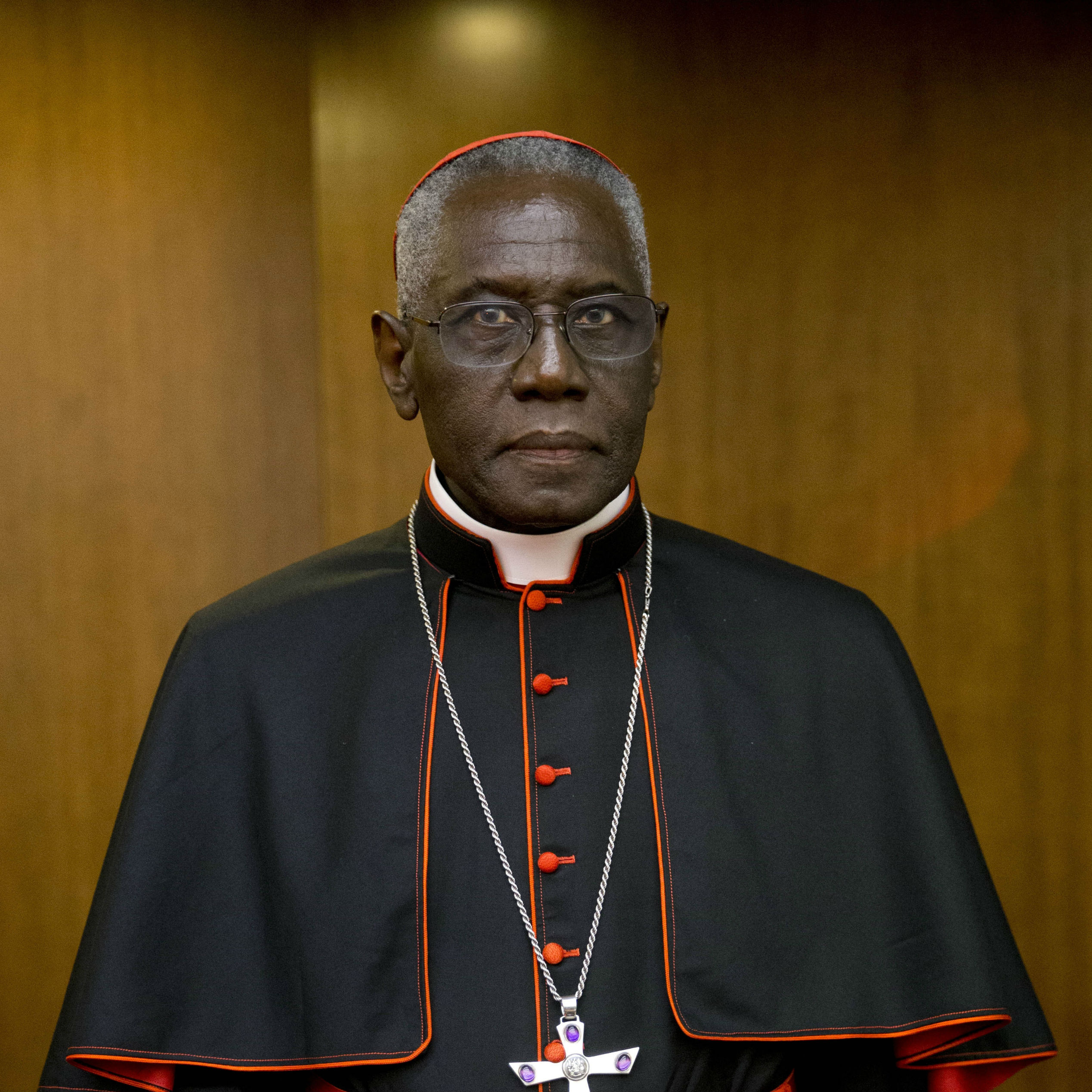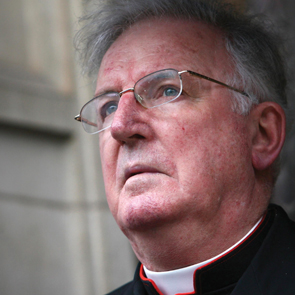“Of course,” Cormac once confided, “it’s a little sad to think that when my obituaries come to be written, they will concentrate on the abuse affair.”
Cardinal Cormac and I met once a week for half a year or so to work on his memoir, An English Spring. Cormac would stretch out his legs and tip his shoes on to the rug and I would switch on my little recorder. For the next few hours I would be transported to an unfamiliar terrain somewhere between the interior of a confessional and the members’ bar of a west London golf club. No one could seemingly lose the thread of a story only to magically pick it up again later better than Cormac, or to somehow tuck a sharp spiritual truth inside a meandering anecdote about rugby or a bibulous lunch with the Queen Mother.
But Cormac never had any illusions that a dark stain would always disfigure his record as Archbishop of Westminster. The abuse crisis, and his own part in it, tore apart everything he thought he knew about the Church, about the priesthood, and, perhaps most savagely disturbing of all, about the family. Yet in a strange and unexpected way it brought a humiliation and a shame that both broke him and made him.
“Up to that point I had led a bit of a charmed life,” he told me. “A loving family, a fairly smooth ride up the church ladder, and a final, slightly unexpected, elevation. And then suddenly out of the blue there was this catastrophe.”
One Sunday at the height of the tempest when he was on his way to Lourdes for the diocesan pilgrimage, he was sitting in the departure hall at Stansted airport, reading an article in The Sunday Telegraph, with more detailed allegations relating to the paedophile priest, Michael Hill. When he looked up, he could see there were other pilgrims with their papers opened at the same page, reading the same story. He realised that his credibility was shattered, and that whatever legacy he might leave, it would always be overshadowed by the Hill affair.
Cormac was never a spiritual virtuoso or someone prone to unhealthy self-absorption. But at this moment when his world appeared to be crumbling, he found he could reach for something to hold him steady. His faith was unbudged. It was something he simply found he had been given, rather than wrestled with and captured after a struggle.
“I had lost my reputation. I realised there was nothing I could do about that. I just thought, well, I’ll have to press on and do what I can to put things right, to leave things better than I found them. What else can we do?”
Cormac was slow to register the pain, damage and anguish suffered by the victims of abuse. He was the youngest of five sons and perhaps a little spoilt. “I was always the pet,” he confessed. Like a lot of people from relatively happy and secure family backgrounds, he found it difficult to grasp that families can be places of terrible abuse and violence as well as of love and security. He knew the damage he had caused. His anguish and shame were heartfelt. But it took a while for it to sink in. The three weeks he spent in Ireland in early 2011 listening to the stories of survivors and victims of abuse brought home to him the terrible effect of the tearing apart of young lives. He was bounced out of a lifetime of easy bonhomie into an intense engagement with the suffering of others.
He was lucky. Only a few weeks after the storm broke in the summer of 2000, he received a telephone call. It was Lord Nolan, a Catholic who Cormac knew slightly: Nolan had recently completed his work on setting higher standards in public life for John Major’s government. “Can I help with all this trouble?” Nolan asked him. Cormac thought over his offer, and rang him back. “Yes, Michael,” I said, “I think you can.”
Cormac knew instinctively - his instincts were usually sound - that there had to be an independent, root and branch review of child protection in the Church. But he was lucky - the Church was lucky - in another way. Cormac felt that a personal factor helped to swing the bishops round to accepting Nolan’s report and recommendations. His ministry as the leader of the Catholic Church in England and Wales had been seriously diminished. He was having a tough time of it in the media, and he knew he wasn’t always performing brilliantly. “There was a clamour for me to go. I was on the rack. In a strange way,” he told me, “I think the fact that my personal authority had been damaged might have worked in my favour. I was a brother in trouble, and the bishops reached out to help.”
Cormac knew he had made mistakes, and he knew that people had suffered because of them. Gradually, it dawned on him, as it is very slowly dawning on the rest of the Church, who is at the centre of this most unspeakable of stories in the long history of the Church: the many hundreds of thousands of children and young adults sexually abused by its priests, whose mission and vocation is precisely to serve them. And Cormac was aware of the terrible irony that if his mistakes had not come to light, then he would not have established the Nolan committee as quickly as he did, and its recommendations would not have been adopted by all the bishops in the way they were.



 Loading ...
Loading ...